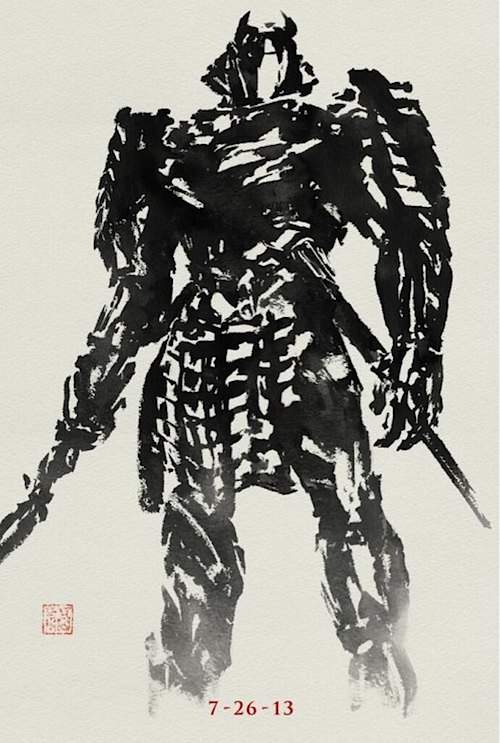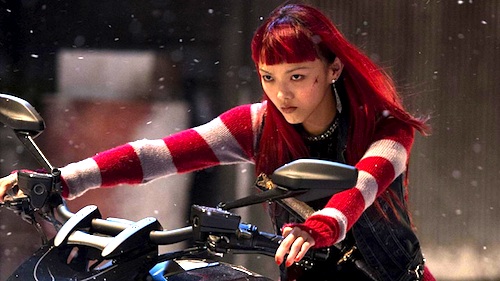By Joe Bendel. Visitors come to New York from nearly everywhere, perhaps even including the fairy realm, or some such place. One mousy New Yorker will open her home and perhaps her heart to a decidedly foreign visitor when the Korean fable of the Woodcutter and the Nymph (that shares common elements with the Swan Maiden and Selkie myths) gets a quietly modern makeover in Lee Isaac Chung’s Abigail Harm, opening this Friday in New York.
Shy and retiring, Abigail Harm reads to the blind because she does not like to be seen. Her garrulous father was also a storyteller, but her relationship to the old man was complicated in ways we will never understand. One fateful night, she shelters a strange fugitive, who seems to believe he is a mystical being trapped in our world because someone stole his robe. To thank Harm, he gives her directions on where to similarly entrap one of his fellow visitors, who will become her faithful lover as long as she keeps his stolen garment in her possession.
While Harm is ordinarily quite taciturn, she is rather talkative compared to the strange visitor she ensnares. Yet, a romantic relationship duly develops between them. Nonetheless, questions regarding the sustainability and legitimacy of it all seem to nag at Harm’s subconscious.
Born to play misfits, Amanda Plummer (who is currently appearing on the New York stage in an excellent staging of Tennessee Williams’ eerie Two Character Play) suggests a lifetime of angst and insecurity without revealing any of Harm’s secrets. She stirs viewer empathy, but subtly suggests there is something damaged and maybe a little bit off about her.

As her visitor, Tetsuo Kuramochi expresses much without dialogue, but his character still largely remains a cipher during the course of the film. However, Will Patton makes the most of his brief appearance as Harm’s agitated visitor, giving the film its most substantial jolt of energy, as well as performing the narration, which elegantly evokes a sense of once-upon-a-time.
There is no getting around the film’s deliberately paced artiness and its defiantly unsatisfying third act. Nonetheless, it remains one of the smartest urban fantasies of the year. It gracefully hints at cosmic goings on, lurking in plain sight on the streets and subways we use every day (the Union Square station, in this case), without cribbing the adolescent melodrama of the Buffy and Twilight franchises. Adults will find it a welcome antidote to Mortal Instruments and similar copies of copies.
Although it is headed to a very different destination, Abigail Harm would be an appropriate companion film to John Sayles’ Secret of Roan Inish. Strangely, it is also thematically compatible with The Two Character Play, a surreal two-hander about alienation and confinement. Recommended for those who appreciate more demanding manifestations of the fantastic, Abigail Harm opens this Friday (8/30) in New York at the Quad Cinema.
LFM GRADE: B
Posted on August 26th, 2013 at 12:44pm.

